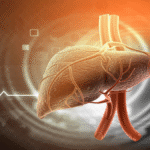Eating superfoods for a healthy liver is one of the key ways to stop liver disorders from developing. Because of its many roles in the body, including its crucial role in the process of nutritional utilization, the liver is one of the most vital organs in the human body. For this reason, we suggest the greatest meals to maintain a healthy liver and avoid liver disorders and infections.
Often referred to as the body’s powerhouse, the liver tirelessly carries out more than 500 vital tasks that are vital to general health. The liver is a multipurpose wonder that supports the immune system, stores nutrients, and eliminates waste in addition to metabolic functions. Fortunately, several “superfoods” are well-known for their capacity to protect liver cells from damage and improve liver function.
Foods That Help You To Keep A Healthy Liver

1. Green Vegetables
While every diet should incorporate a variety of green vegetables, some stand out due to being superfoods for a healthy liver and preventing potential diseases. Vegetables such as kale, broccoli, spinach, cauliflower, and Brussels sprouts are particularly beneficial.
These nutrient-dense greens are rich in compounds that promote the body’s natural detoxification processes, helping to flush out toxins and protect vital organs like the liver. Not only do these vegetables assist in weight loss by providing fiber and essential vitamins, but they also contain specific antioxidants, like sulforaphane in broccoli, which have been shown to support liver function.
Additionally, they can prevent the accumulation of iron in the liver, an important factor in avoiding conditions like hemochromatosis and liver damage, which can lead to serious illnesses such as liver cancer. Including these green vegetables in your daily meals can significantly improve liver health, supporting long-term well-being and reducing the risk of liver-related diseases.
2. Garlic
Garlic, widely known for its bold and distinctive flavor, is also among the best foods for liver health. Packed with beneficial compounds like selenium, allicin, and sulfur-containing substances, garlic plays an essential role in detoxifying the liver by assisting in the removal of toxins and promoting the body’s natural cleansing processes.
By incorporating garlic into your daily meals, whether cooked into dishes like soups, stir-fries, and stews, or added raw to salads and dressings, you can enjoy its liver-protective benefits. Regularly consuming garlic not only enhances the flavor of your food but also promotes long-term liver health, making it an invaluable ingredient in any diet focused on detoxification and overall well-being. It is one of the best superfoods for a healthy liver.
3. Oatmeal
For individuals with liver conditions who need to limit their protein intake, carbohydrates become an essential source of energy. Among the healthiest and most beneficial sources of carbohydrates is oatmeal, which provides numerous advantages for liver health.
Oatmeal is a complex carbohydrate, meaning it digests slowly, providing sustained energy throughout the day. Its high fiber content further enhances its benefits by promoting satiety, helping individuals feel fuller for longer periods, which can be beneficial for weight management.
The fiber in oatmeal also aids in digestive health and helps regulate blood sugar levels. By lowering liver fat levels, beta-glucans may help prevent the progression of fatty liver disease, a common liver condition. Incorporating oatmeal into a balanced diet not only supports overall health but also provides a gentle, liver-friendly source of nourishment.
4. Nuts
Consuming meals that are rich in omega-3 fatty acids and other healthy fats is a crucial part of maintaining a healthy liver. Foods such as avocado, olive oil, and a variety of nuts are excellent sources of these beneficial fats. These healthy fats are not only essential for overall body function but also play a significant role in liver health.
Contrary to the misconception that all fats are harmful, incorporating good fats into your diet can help prevent the body from storing excess fat, which can otherwise accumulate in the liver and lead to fatty liver disease. Omega-3 fatty acids, in particular, have anti-inflammatory properties that can help reduce liver inflammation and improve liver function.
Regularly consuming these fats in place of unhealthy options like butter or margarine helps regulate fat metabolism, supporting liver detoxification and reducing the risk of liver-related diseases. Including these healthy fats in your daily meals can be an effective strategy for liver protection and overall well-being.
5. Grapefruit
This one of the superfoods for a healthy liver, known for its refreshing acidity, is packed with essential nutrients like vitamin C and antioxidants, which are critical in supporting the liver’s natural detoxification processes. The high levels of vitamin C in grapefruit help strengthen the immune system and aid in neutralizing harmful toxins within the liver, promoting overall liver health.
Including grapefruit in your diet is a simple yet effective way to harness its liver-boosting benefits. You can enjoy grapefruit in a variety of ways, such as adding fresh segments to salads for a burst of flavor or squeezing out the juice to create a refreshing drink. Whether consumed whole or in juice form, grapefruit serves as a delicious and natural way to support liver function while providing a wealth of vital nutrients.
6. Beets
Beets, with their vibrant red and purple hues, are a powerhouse of nutrients that can significantly enhance liver health. Betalains help optimize liver function by reducing oxidative stress and supporting the liver’s natural detoxification processes.
Moreover, beets contain compounds that promote bile production, which is essential for digestion and the removal of toxins from the body. Including beets in your diet is a delicious and beneficial way to support liver health. You can enjoy them in various forms, whether roasted to enhance their natural sweetness, which brings out their full flavor, or juiced for a refreshing and nutrient-packed drink.
Beets also offer a rich supply of fiber, which aids digestion and helps prevent fat accumulation in the liver. By incorporating beets into your meals, you provide your liver with the nourishment it needs to function at its best.
7. Berries
Berries, such as cranberries and blueberries, are not only delicious but also considered to be the best foods for liver health. These fruits are rich in vitamins like vitamin C, which are vital for boosting the immune system and promoting overall well-being.
Furthermore, they are high in antioxidants, which help combat oxidative stress and reduce inflammation in the liver. This is particularly important because chronic inflammation can contribute to liver damage over time. These polyphenols work by neutralizing free radicals and reducing inflammation, providing essential protection for the liver.
Polyphenols are also present in other foods, such as plums, olives, and dark chocolate, making it easy to include these liver-protecting compounds in your diet. Including berries and other polyphenol-rich foods can help promote long-term liver health and prevent diseases.
8. Avocados
Avocados are a nutritional powerhouse, especially when it comes to protecting liver health. Packed with glutathione, a potent antioxidant, avocados help neutralize harmful free radicals in the body, which can cause oxidative stress and lead to liver damage. This antioxidant activity plays a key role in detoxifying the liver and preventing liver diseases.
In addition to glutathione, avocados are rich in healthy fats, particularly monounsaturated fats, which help regulate fat metabolism and reduce the risk of fat buildup in the liver. These good fats also support the absorption of fat-soluble vitamins and contribute to overall cellular health.
Including avocados in your diet is both delicious and beneficial for your liver. You can enjoy them sliced on sandwiches or in salads, mashed into guacamole, or blended into smoothies. With their creamy texture and versatile flavor, avocados provide a nourishing and enjoyable way to support your liver while promoting long-term health.
Why We Need A Healthy Liver
The liver is one of the most vital organs in our body, playing a central role in maintaining overall health. Its primary function is to filter toxins from the blood, process nutrients, and store vitamins and minerals. The liver also produces bile, which is essential for digesting fats and absorbing fat-soluble vitamins like A, D, E, and K.
Without a healthy liver, our body would struggle to remove harmful substances and would face difficulties in digesting and absorbing nutrients properly. A healthy liver also supports the body’s metabolism and regulates blood sugar, ensuring that energy is balanced and available when needed.
Moreover, the liver plays a key role in producing proteins that help with blood clotting and maintaining fluid balance. It also helps break down and remove excess hormones, ensuring that the body’s hormonal systems remain in balance.
When the liver becomes damaged or unhealthy, its ability to perform these critical functions is impaired, which can lead to various health issues such as fatty liver disease, liver cirrhosis, or even liver cancer. Therefore, maintaining a healthy liver is crucial for the body’s overall functioning and well-being.
To support liver health, it is important to adopt a balanced diet with superfoods for a healthy liver, avoid excessive alcohol consumption, exercise regularly, and manage stress. Regular checkups can also help detect any potential issues early, allowing for timely intervention and better health outcomes. Prioritizing liver health ensures a longer, healthier life.
FAQ
Q: Can the health of the liver be improved?
A: Weight reduction has been shown to reduce the quantity of fat in the liver and the inflammation brought on by the fat, making it the most effective therapy for non-alcoholic fatty liver disease.
Q: When your liver enzymes are elevated, what happens?
A: Although minor increases may not usually indicate a major issue, elevated liver enzymes, which are often seen during regular blood testing, may suggest liver damage or illness. If symptoms are present, they may include dark urine, lethargy, jaundice, and stomach discomfort.
Q: Is it possible to treat liver disease?
A: While not all liver disorders may be completely treated, many can be controlled or even reversed with the right care and lifestyle modifications, and some, particularly viral infections like hepatitis C, can be cured with medicine.











